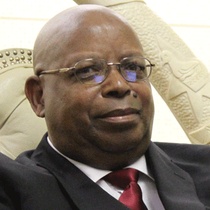
GOVERNMENT has started moves to implement new provisions of the Constitution calling for the establishment of the Gender and Peace and Reconciliation commissions nearly a year after adopting the new charter.
By Senior Reporter
The two new commissions were created by the new charter adopted last May to add to the already existing Zimbabwe Electoral Commission, Zimbabwe Media Commission and Human Rights Commission established in 2009.
The composition of the new commissions will be based more on merit and political correctness than in the past when commissioners were horse-traded by the coalition government partners.
Speaker of the National Assembly and chairman of the Standing Rules and Orders Committee (SROC) Jacob Mudenda said the selection process for commissioners would be handled swiftly without political intervention of parties.
“Merit would be the deciding factor this time around as there is no horse-trading like in the previous arrangement,” Mudenda said.
Civil society in 2010 raised a storm when persons like Media Commission chief executive Tafataona Mahoso still managed to get into the Broadcasting Authority of Zimbabwe board despite having failed the interviews at Parliament.
The two new commissions, Gender and Peace and Reconciliation, will monitor issues concerning gender equality and ensure post-conflict justice, healing and reconciliation respectively.
- Chamisa under fire over US$120K donation
- Mavhunga puts DeMbare into Chibuku quarterfinals
- Pension funds bet on Cabora Bassa oilfields
- Councils defy govt fire tender directive
Keep Reading
Peace and reconciliation has remained a sore point in Zimbabwe’s history that is checkered by so many systematic human rights abuses perpetrated by mainly by State security agents on the civilian population.
Among the pre and post-independence atrocities include the war massacres at Nyadzonia and Chimoio, Gukurahundi, Operation Murambatsvina and the bloody 2008 presidential run-off.
The issue of human rights abuse was a sore point in Zimbabwe’s politics to the extent that the passage of the Zimbabwe Human Rights Act had to be negotiated among the coalition partners.
The parties reached a compromise that the independent commissions could not investigate cases of abuse involving State agents that took place in 2009. Nominations for commissioners close on May 23 2014 and the SROC will then meet to decide when to hold the interviews before seconding the successful candidates to the President for appointment.











